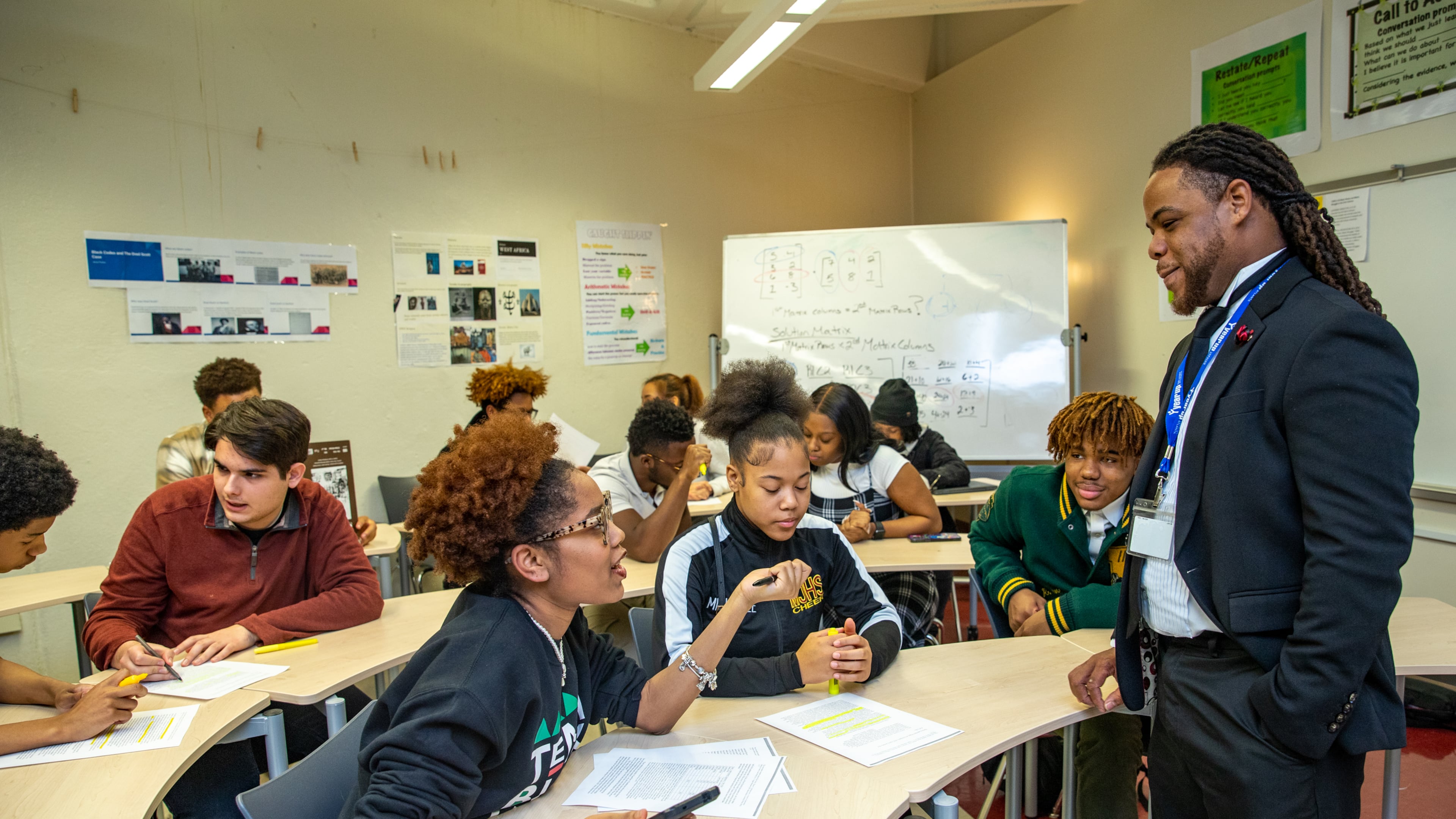Georgia school superintendent nixes AP African American Studies course

The students in a pilot AP African American Studies course at Atlanta’s Maynard Jackson High School told me they learned more about the contribution of their ancestors and their heritage in that single class than in their entire prior decade in school.
“I have learned so much about our culture in this course and I feel they should be sharing our culture with everyone else,” said Da’Merra Handley, a student in the pilot class in the spring of 2023. “Everyone should be learning about it.”
That may be unlikely after Georgia’s school superintendent declined to recommend the course to the state Board of Education. Gwinnett County Public Schools to notify students Monday that AP African American Studies will not be offered and they will have to adjust their schedules. Word is only now getting out about the state’s decision.
The teacher who taught the pilot courses at Maynard Jackson was unaware of the superintendent’s action when I reached out to him. Rashad Brown was planning to teach the popular course again this year and hopes he can still somehow do so.
“This is crazy,” he said. “As an educator of the course and an advocate for student rights, African American history is American history.”

“This course was previously approved through a College Board pilot — pilots do not require an approval process at the state level,” said state DOE spokeswoman Meghan Frick Monday in an email. “With the pilot concluded, there are two ways for a course to be formally approved to receive state funding in Georgia: the State School Superintendent can make a recommendation for approval, or the State Board of Education can initiate an approval directly. Superintendent Woods has opted not to recommend this course for state approval at this time.”
“Districts have multiple options to offer courses on this topic to their students. Local districts may still offer the AP course with local funding,” said Frick.
That local cost would entail the teacher’s salary benefits and any required supplies for the class.”
In a new statement Wednesday after questions about the reason for his decision, Richard Woods said, “There has been an African American Studies course code in the catalog of state-funded courses since 2020...When I reviewed the AP course, I had concerns about the state endorsing the totality of the course. It’s my position that districts should use the existing course code – which offers them the flexibility to develop their own curriculum based on local priorities, or to use standards from the AP course if they choose and in consultation with their communities.”
AP courses are college-level content developed by the College Board and offered in high school. The College Board describes AP African American Studies as an examination of the diversity of African American experiences. The course framework states: “Given the interdisciplinary character of African American Studies, student will develop skills across multiple fields, with an emphasis on developing historical, literary, visual and data analysis skills. This course foregrounds a study of the diversity of Black communities in the United States within the broader context of Africa and the African diaspora.”
Among the first elected officials to react was state Rep. Jasmine Clark, D-Lilburn, who said, “Our schools offer a number of AP courses. The fact that AP African American studies was removed from our schools is alarming and an injustice to our students who eagerly anticipated taking this course. Erasure of Black history from our schools is not and never will be OK. I stand with the students and hope the state superintendent will reconsider his position.”
Gwinnett school board member Adrienne Simmons said, “Students in Gwinnett County Public Schools and across the state are being denied their right to education on the history and accomplishments of Black people.”
“This decision tells Georgia’s families and educators – as well as prospective businesses and university students – that our state prioritizes what’s white over what’s right for our kids,” said Tracey Nance, Georgia’s 2020 and 2021 Teacher of the Year. “If Georgia hopes to be economically and academically attractive, it’s time that its decision-makers get on the same page as the vast majority of Georgians: Every child deserves access to a rigorous and complete education that shows every child is seen, heard, and valued.”



